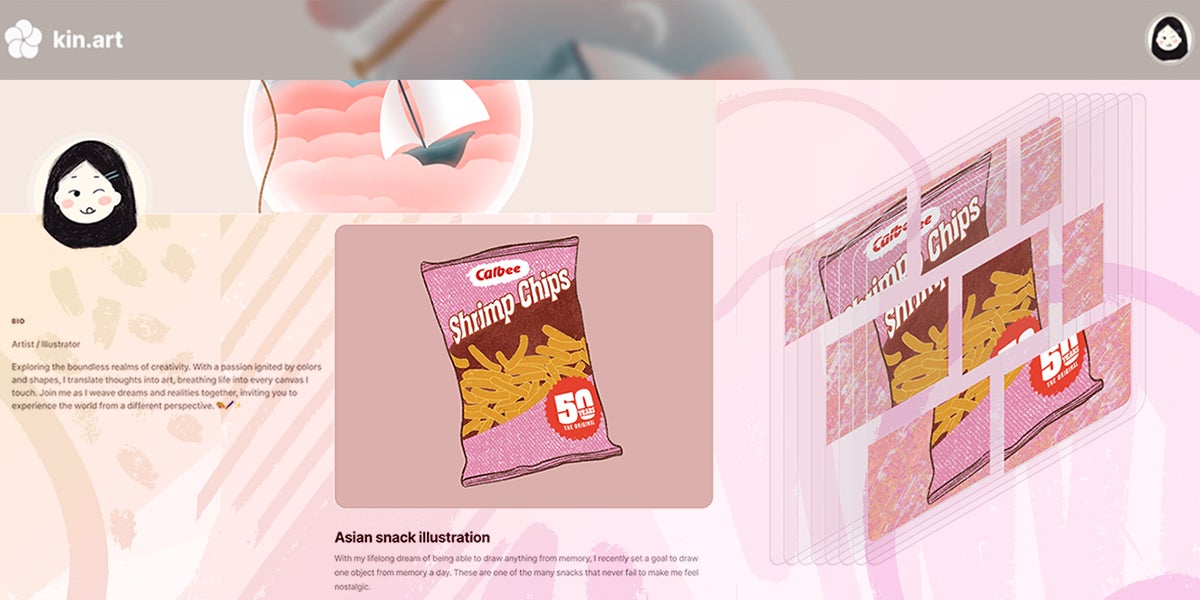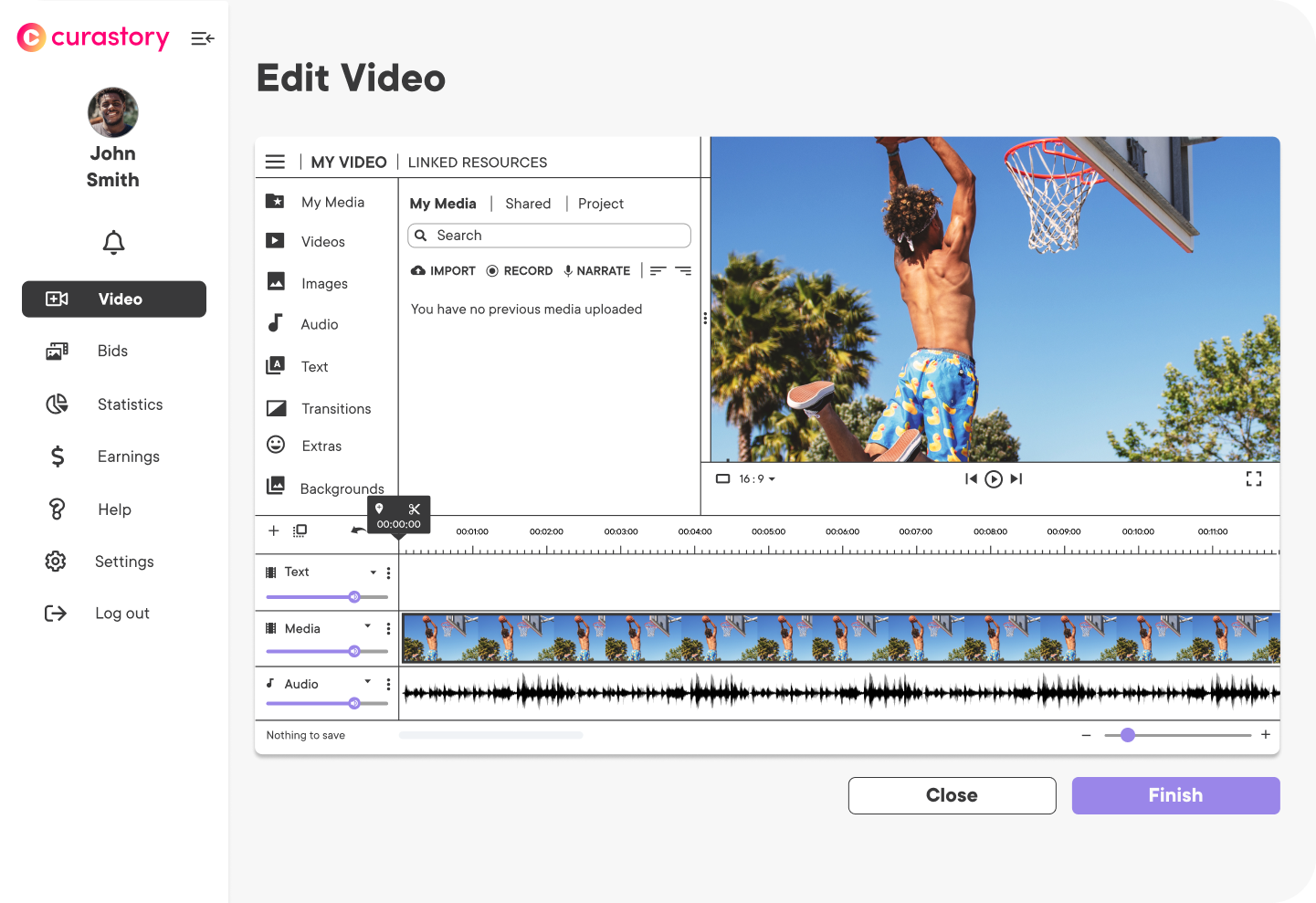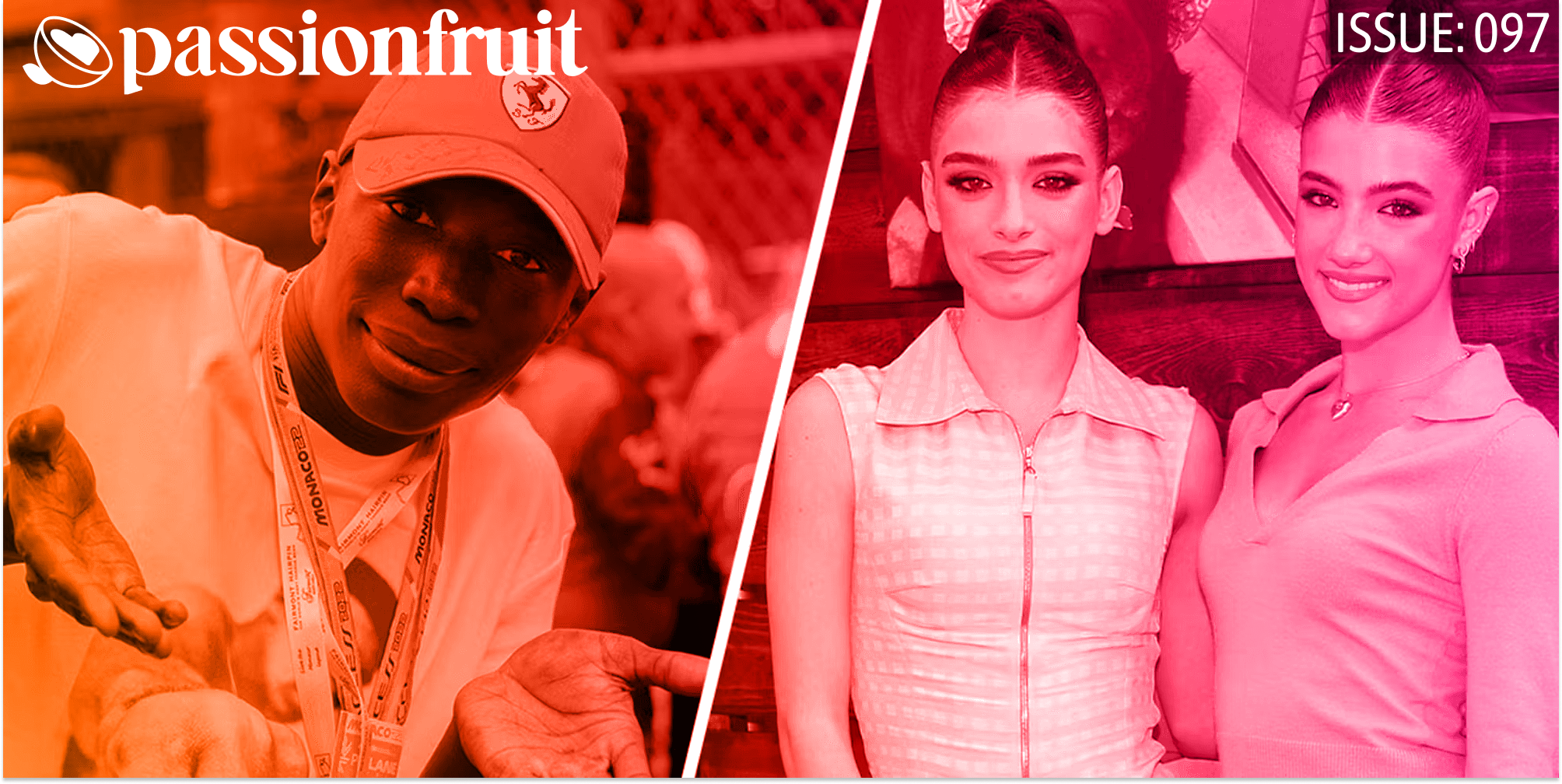CREATOR NEWSLETTER
Issue #205 | January 23, 2024
Being a full-time content creator is often referred to as a “dream job.” More kids today aspire to be YouTubers than astronauts, with almost 30% of children ages 8 through 10 listing being a YouTuber as their top career choice in a 2019 survey. According to a more recent 2023 report, 57% of Gen Zers said they’d want to be an influencer if the opportunity presented itself.
Yet, despite the shimmering allure of fame and creative freedom, those working inside the creator economy know that “making it” is no easy feat. And this week, a tidal wave of YouTuber retirements is leading many in the field to speak out about how this so-called dream job can take a toll.
YouTuber Tom Scott was the first and biggest name this month to say he is abandoning the content creation hamster wheel. On Jan. 1, he posted a video for his 6 million subscribers explaining that after 10 years of posting weekly videos, he would be stepping away from the grind. While Scott will still be working on a podcast and newsletter in the background, the expectations of constant video production were burning him out.
THE COMMENTS SECTION
“I know I’m incredibly lucky. But a dream job is still a job. And it’s a job that keeps getting bigger and more complicated, and I am so tired! There’s nothing in my life right now except work.“
— Tom Scott said in the video, which now has over 10 million views.
That quote rang throughout the internet, and it specifically gave another creator a much-needed push to announce his retirement. As previously reported by Passionfruit, in a tearful goodbye video on Jan. 9, Matthew “MatPat” Patrick announced that he would be retiring as the main host of the Game Theorist YouTube channel. In his video, Patrick said he’s exhausted from being constantly in work mode and wants to spend more time with his family. Much like Scott, he’ll still be behind the scenes working on bigger projects (including an upcoming creator fashion show and a fictional series).
We’ve heard time and time again that sharing so much of yourself online while trying to appease ever-changing algorithms is exhausting and takes a huge toll on mental health. This sentiment seems to be a common theme in many recent creator retirements — animator Hunter “MeatCanyon” Hancock, musician Seth Everman, “Minecraft” creator Jordan “CaptainSparklez” Maron, sex education YouTuber Hannah Witton, and gamer Turner “Tfue” Tenney have all announced they are stepping back from posting videos this year for similar reasons.
Now, creators across the internet are sharing their thoughts on why so many long-time creators, who have seemingly met every metric of success and accumulated millions of followers, would want to leave it all behind.
Music reviewer Anthony Fantano, who has over 2.8 million subscribers and has been making YouTube videos since 2009, posted a video on Jan. 19 responding to the recent creator retirements. While Fantano is not planning on retiring from his music reviewing career any time soon, he noted that particular types of YouTubers — like those who make massive animated productions or put their day-to-day life at the forefront of their content — are probably more likely to experience burnout.
One of the most famous examples of a YouTube retiree is Jenna Marbles, a cultural icon and one of YouTube’s first stars, who quit YouTube following an onslaught of controversies in 2020. Being online, it appears, took a toll over the years. Her husband Julien Solomita, currently a popular Twitch streamer, made a video on Jan. 20 about the recent discourse regarding burnout.
“I think people need to have this conversation and understand the different sides of why a YouTuber feels the need to hang it up,” Solomita says in his video. “You’re kind of giving a part of yourself to make yourself available in content for the world. After doing that for a long time, it can sometimes, I think, feel like you’ve forgotten what it feels like to just be a person… [These recently retired YouTubers] have been slowly chipping away at their soul to provide the fuel for this machine.”
Beyond sharing so much of yourself online, it seems that the expectation to constantly make bigger and better productions is another contributing reason behind burnout. Marques Brownlee, a popular YouTuber and tech reviewer who’s been around since 2008, also made a video this week about “quitting” YouTube. In the Jan. 18 video, which has since accumulated over 4 million views, he theorized that for many YouTubers, business growth is a tempting yet fickle opportunity.
“Creative jobs don’t scale like regular jobs. It’s not quite the same,” Brownlee said. “When you first start, you are just being creative. … The more you scale up to address these awesome new opportunities, the less of your job is the original thing that we fell in love with, which is being creative.”
But Brownlee has some advice. Namely, to grow slowly and sustainably. He suggests creators only delegate work that gets in the way of you actually being creative.
“Keep the creative goal at the heart of everything you do,” Brownlee says in his video. “It’s easy to get distracted by the thought of the scale and the money and the fame. … But if you do fall into the trap of chasing algorithmic changes, or chasing the views or the waves of things that happen on YouTube, it is definitely a carrot on a string. It’s never-ending.”
As we’ve mentioned before at Passionfruit, on the internet, there are no formal breaks, no PTO, and no sick days. Algorithms prioritize ever-changing viral trends and consistent uploads. With all-consuming schedules, constant platform policy changes, harassment, and complicated business demands, most people aren’t able to make this career their full-time job. According to a 2022 Linktree report, only 12% of full-time creators make more than $50,000 a year. 68% of part timers make less than $1,000 per year from content creation.
You can look at myriad guides on how to avoid burnout. There are some good tips in there — taking breaks, building pre-planned content calendars, delegating work wisely, mental health apps, therapy. But people have been talking about burnout for years on YouTube, and there aren’t magical solutions for curing it. One 2023 study reported that 79% of creators experience burnout. It’s a tough job.
Which raises the question, why do so many people want to be creators in the first place?
“This is what I enjoy doing,” Fantano said in his video. “Despite having done it for such a long time, and there being a kind of irregularity to it, a stress element … I’m not really sick of it. I feel with no matter what I do, there’s gonna be some cons, and this is just something in my own heart where I feel like the pros vastly outweigh the cons.”
“Because of this whole transition, I’ve been thinking a lot about my time on these channels,” Patrick said in his goodbye video to his audience. “You’re not just numbers, you’re not just ad impressions, you’re not just merch sales. What you have done for me is special. … You’ve taken me on the wildest, craziest, 13-year ride of my life. I am so grateful.”
– Grace Stanley, Deputy Editor
PLATFORMS
Startup Kin.art Is Finally Making Portfolios AI-Proof
The new AI-fighting service is currently free of charge.
By Charlotte Colombo, Passionfruit Contributor

SPONSORED

Curastory is a video enablement tool for creators allowing them to edit, monetize, distribute, and track their videos across social media. Sign up today, begin uploading your day-to-day content, and get matched with brands for monetization in as little as four days.
IN THE BIZ
- Nightshade, a pioneering tool from the University of Chicago, is now available for public use, offering artists a novel way to safeguard their digital artworks against AI replication.
- Female creators and fans in the Star Wars community are challenging recent misogynistic comments from a popular Star Wars YouTube channel, asserting their importance in the franchise’s culture.
- VidCon’s upcoming June event in Anaheim will showcase over 60 featured creators, including notable personalities like MatPat, who has just announced his retirement, alongside the event’s co-founders, Hank and John Green.
- Twitch is intensifying its efforts to prevent ‘Drops farming’ by warning streamers against gaming the system, specifically targeting practices like streaming static images or rebroadcasts instead of live gameplay.
- President Joe Biden’s 2024 election campaign is hiring a director of digital partnerships to work with creators to reach key voting demographics. The campaign is also considering working with creator liaisons in each U.S. state.
- On the heels of layoffs at Google, Amazon, Discord, and others, TikTok has laid off at least 100 employees in the U.S. and abroad.
- MrBeast revealed that he earned $260,000 from a single video on X, but described the figure as misleading due to its unusually high revenue per view, sparking discussions about the platform’s advertising and revenue systems.
PLATFORMS
You Can Now Make AI Songs on TikTok — But We Have Questions
By Charlotte Colombo, Passionfruit Contributor
CULTURE
The ‘Palworld’ Witch Hunt Has Gone on Long Enough
The recently released monster-hunting game is so much more than a Pokémon clone.
By Steven Asarch, Passionfruit Contributor
JOB BOARD
- Media company Barstool Sports is looking for a junior graphics designer.
- YouTube production company CatFace is hiring a concept artist.
- Fitness creator Conor Harris is looking for a thumbnail designer.
- Anime creator IMOTO is looking for a scriptwriter.
TIKTOK MADE ME DO IT
The announcement of the Academy Award nominations this morning brought its share of shocks and snubs, sparking a flurry of reactions and opinions from TikTokers — like this one from @hannahzookpop.


Copyright © 2024 Passionfruit, All rights reserved.
You are receiving this email because you signed up to get the latest tips, tricks,
and trends in the creator economy from Passionfruit.
Have an idea for our next big story or want to get featured? Email us at tips@passionfru.it
Don’t want to hear from us anymore?
Click here to unsubscribe
To view in your browser click here





